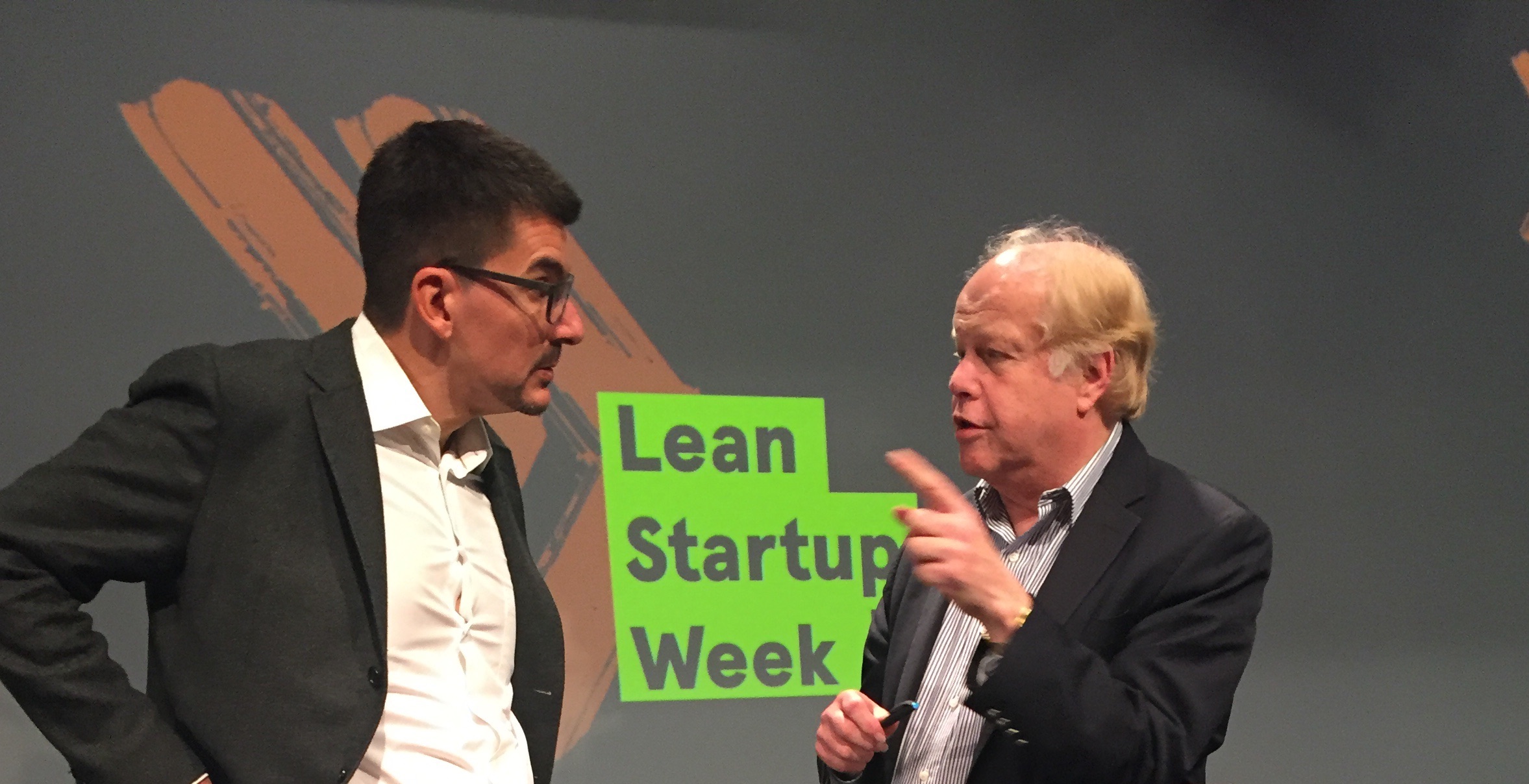What’s changing in leading edge innovation thinking?
For the fourth year running we attended the Lean Startup Conference in San Francisco, hosted by Eric Ries, the founder of the Lean Startup movement.
The Lean Startup methodology has changed the way both small and large organisations work, developing businesses and products quickly and iteratively based on tests and insights from customers. The approach is now evolving to focus on empathy as a starting point for understanding customer’s needs; part of a broader shift of focus towards the customer.
Here are my four key takeaways from the conference:
1. Design Thinking and the Lean Startup are moving closer together.There was a decided focus on empathy as the starting point to getting closer to your customer. While rapid experimentation is a given, the common view was that empathy was the way to uncover customers’ needs, pains and gains. This is somewhat of a change from past conferences, where there was little to no mention of empathy or Design Thinking. Empathy, and empathic interviewing and observations, is necessary to uncover not what customers want (because they don’t know) but what they need, to address their gains and their pains. Once these have been uncovered, the real problem to be solved can be uncovered – and it might not be the problem that appeared obvious at the beginning. After ideating around solutions to the problem, then the Lean Startup process of Build-Measure-Learn can be used to validate, and invalidate, the underlying assumptions of the solutions.
2. It’s all about the Experience. Chip Heath talked about his new book The Power of Moments – how we all have defining moments in our lives – meaningful experiences that stand out in our memory. Many of them we owe to a great deal of chance: A lucky encounter with someone who becomes the love of your life. A new teacher who spots a talent you did not know you had. A realisation that you don’t want to spend one more day in your job. The question Chip posed at the conference was: Can we shape these moments and control them? Through research, Chip maintains that defining moments are created from one or more of the following four elements:
- ELEVATION: Defining moments rise above the everyday. Moments of elevation transcend the normal course of events; they are extraordinary
- INSIGHT: In a few seconds or minutes, we have the “ah ha” moments in which we realise the importance of the moment and have a sudden flash of insight into something that was obscure until now
- PRIDE: Defining moments capture us at our best – moments of achievement, moments of courage
- CONNECTIONS: These are moments we share with others such as weddings, graduations, vacations and the like
3. The Business Portfolio Map. Alex Osterwalder (pictured above in conversation with me) ran an excellent workshop about the need to manage a portfolio of innovation that leads on from the Business Model Canvas. Most of us are familiar with the concept of Explore and Exploit when it comes to mapping our strategic priorities, but few of us really understand how to map activities against a framework that makes strategic sense. Alex presented an excellent process to not only map out the Explore and Exploit opportunities, but also to link them in a manner that makes their management almost obvious. What is really nice about his model is that he regards the Explore and Exploit opportunities as a collection of business models (i.e. business model canvasses) so his thinking is a logical extension of the previous work on the various canvasses he has developed in the past. Further, through the use of his processes, one can not only uncover new business model opportunities, but also evaluate the effectiveness of the business models in play.
The final question posed at the workshop was: Do you have a balanced portfolio that makes you invincible?
4. Artificial Intelligence will create jobs for tasks we have not yet imagined. Tim O’Reilly from wtfeconomy.com spoke about the buzz that artificial intelligence will put hundreds of thousands of people out of work. He pointed out that when Amazon added 45,000 robots, they added 250,000 human workers. His message is that we have to draw a new map of the world, not be blinkered by what we know today, and we need to realise that, as the world increasingly becomes digital, and as artificial intelligence and algorithmic systems pervade all that we do, we are actually creating new kinds of partnerships between machines and humans. He emphasises that we should not just recreate what went before – we need to rethink business models, workflows and processes. For example, Henry Ford didn’t just rethink the automobile and the factory, he rethought the work week, and the reasons why people might want to drive.







